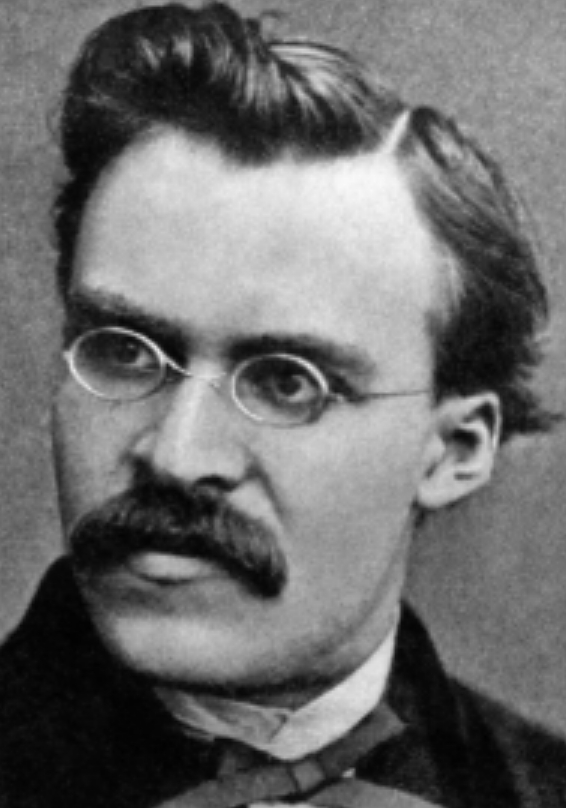On this date in 1844, Friedrich Nietzsche was born in a town near Leipzig, Germany. “Fritz” was the son of a Lutheran minister who died when Friedrich was 4 and the grandson of two Lutheran pastors. At age 20, he wrote his sister that one could choose consolation in faith or pursue the truth no matter where it led. During a stint of mandatory military service, he suffered a serious chest injury. He then enrolled at the University of Leipzig, where he met and became friends with Wagner and Wagner’s wife.
A brilliant student, he was given his Ph.D. without an examination and joined the faculty of the University of Basel at age 24. Working as a hospital attendant during the Franco-Prussian War of 1870-71, Nietzsche’s health was permanently weakened when he came down with diphtheria and dysentery.
His first book, The Birth of Tragedy (1872), was written when he was 28. It was followed by Human, All-Too-Human (1878-80), which ended his friendship with Wagner. Nietzsche resigned from his university position due to health problems. His outpouring of books includes Daybreak (1881), The Gay Science (1882), in which he wrote “God is dead,” Thus Spake Zarathrustra (1883-91), which he considered his most significant work, Beyond Good and Evil (1886), On the Genealogy of Morals (1887), which critiqued the priesthood, Twilight of the Idols (1888), The Case against Wagner (1888), in which he wrote that he “declares war” on the decadent composer who had turned back to religion, and The Antichrist (1888). “In Christianity neither morality nor religion come into contact with reality at any point,” he wrote in The Antichrist.
In 1889 he suffered a mental breakdown from which he never recovered and was nursed by his mother and sister for the remaining seven years of his life. In the last years of his life, he was reduced to a childlike state and was unable to converse with or recognize most people. Visitors would sometimes hear animal-like howls coming from his upstairs quarters. He did not live long enough to see his vast influence as one of the most respected thinkers of modern times.
Nietzsche is often falsely accused of fueling Nazism with his concept of the Ubermensch. He was not an anti-Semite, although he did not spare Judaism his trenchant criticisms any more than he spared Christianity. Nor was he a nationalist or militarist. (His sister, Frau Foerster-Nietzsche, who was an anti-Semite, forged 30 letters and put words into the mouth of her brother in compiling The Will to Power from manuscripts after his death.)
In Thus Spake Zarathustra, Nietzsche described his “higher man” as one who overcomes superstition: “I beseech you, my brothers, remain faithful to the earth, and do not believe those who speak to you of otherworldly hopes!” (D. 1900)

